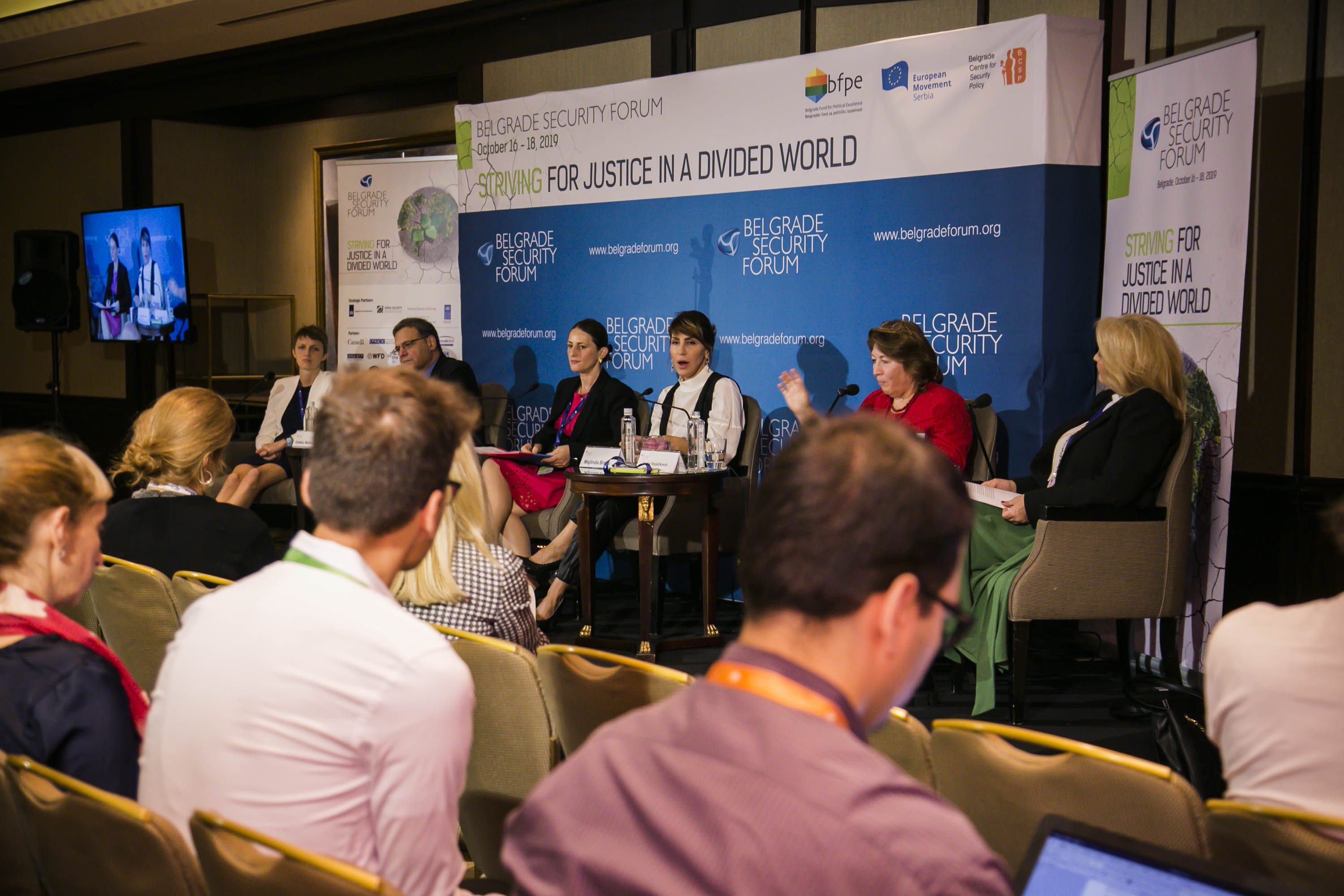Women on the Frontlines of Climate Change
Session titled Image Of The Future: A Green, More Developed Western Balkans explored the importance of the role of women and local communities in collective efforts to lead the change and combat climate change, air pollution and other environmental issues. Moderator Sanja Nikolin led an inspiring discussion on what is being doing and what can be done to create a more sustainable economy in the Western Balkans region.
Irena Vojáčková-Sollorano, UNDCO Regional Director a.i. for Europe and Central Asia in Istanbul, stressed the importance of working with local communities when it comes to ecological issues.
“It is the local communities that make things happen or don’t make thing happen. When they are abused they don’t make things”, Vojáčková-Sollorano was clear.
She explained how young people in these small local communities are the one leading the change and bringing new energy into the region but pointed out that many young people are now leaving our region.
“Young people are leaving, because we don’t give them the sense of community,” she said and added she believes the answer lies in educating local communities about the power they have and not leaving them to the devices of new politicians who care only for their own political interests.
“Wherever I go, I meet people who come from the Western Balkans and they are always successful people. Imagine how amazing it would be if they were staying here,” she concluded.
Majlinda Bregu, Secretary General, Regional Cooperation Council, expressed her concern for health issues such as breast cancer that are caused by severe air pollution in our region. She presented the findings of a survey in which was concluded that 84% of people in the region perceive climate change as a problem but 60% don’t care about air pollution. This is why environment and green agenda should be a priority.
Bregu called for a bottom-up approach in implementing green agenda and dealing with these issues by saying “work with municipalities is crucial, because they are the ones that implement policies,” she stated.
She brought up that young women should be incentivized to study science and new technologies as part of the 4th industrial revolution. This will strengthen their contribution to the society and could prevent brain drain.
Blerta Cela, Deputy Regional Director, UN Women Europe and Central Asia Regional Office, was more interested in gender perspective when dealing with these ecological issues and argued that women are the solution to many development challenges that we are facing.
“There will not be a more green and prosperous Balkans if half of its population is not effectively participating in the development processes,” Cela said and continued to explain that women are often on the frontlines in the battle against climate change. To illustrate her statement Cela said more woman than men are changing their lifestyle, learning to recycle and compost to combat environmental pollution at the lowest level.
Julian Popov, Fellow, European Climate Foundation, had a positive outlook on these issues, however he still believes change is happening very slowly. In his view, we can’t afford to move slowly when everything around is moving so fast, climate crisis is becoming more critical and technology is accelerating everything. Popov argued that reducing climate risks requires a deep economic transformation.
“Moving towards greener economy is actually beneficial in economic terms,” he noted explaining how greener economy and renewable energy is not only beneficial in long term but also immediately beneficial. He joked about coal mining being a more masculine profession and perhaps that being the reason women are more interested in clean energy. He wrapped up by saying he supports more profound engagement of women in energy sector.
Vlatka Matković, Senior Health and Energy Office, Brussels, empathized green energy and healthy environment being extremely important for wellbeing and health of our citizens. She highlighted the severity of air pollution here in the Western Balkans in comparison to EU. Matković warned that environment pollution does not stop at borders and, therefore, an international cooperation in fighting pollution is needed. She urged for more mechanisms to reduce air pollution and pointed to already existing legislation that deals with these issues but is not implemented in our practices.
“When are we going to do something? When are we going to install filters in our coal plants? When are we going to shut down coal plants?” Matković demanded.








